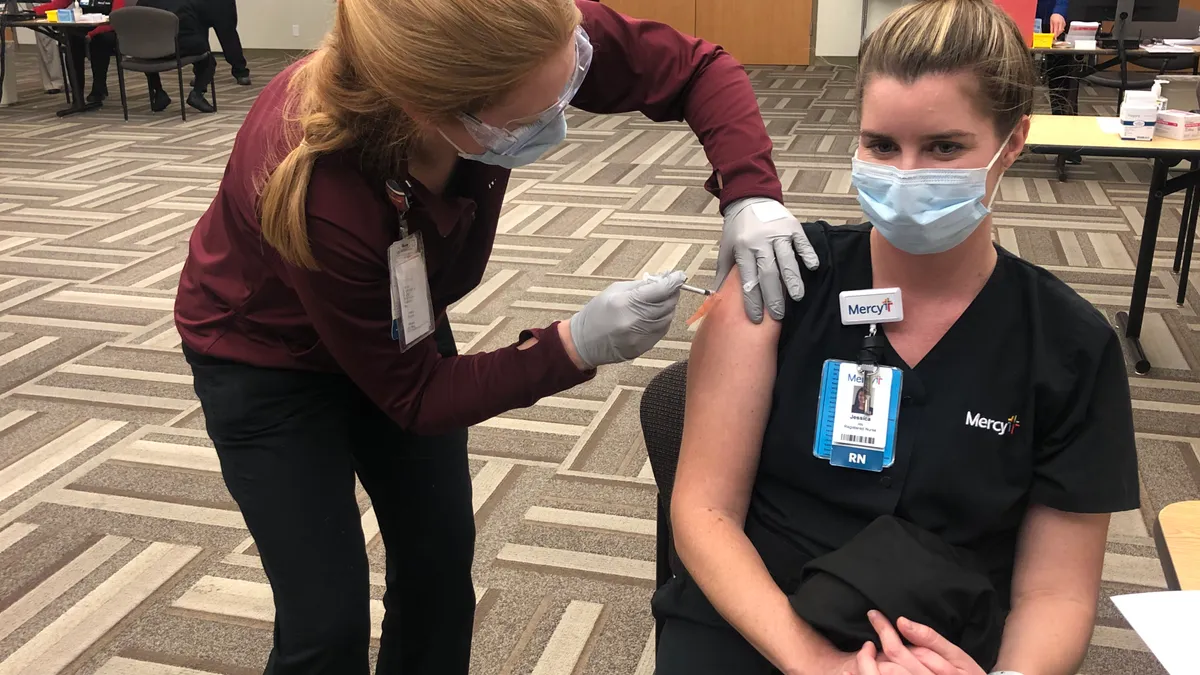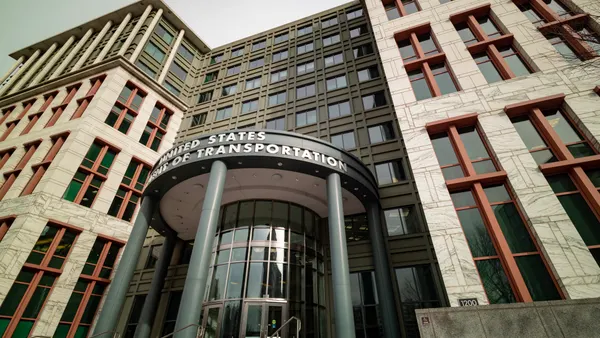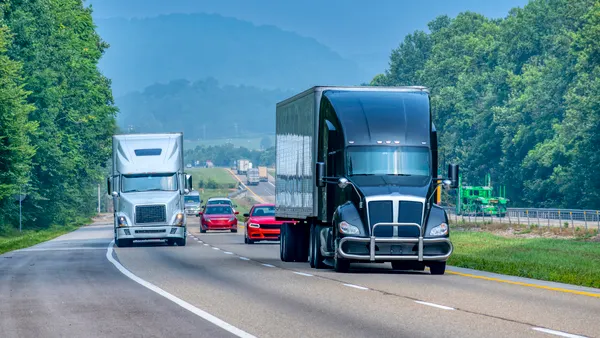Dive Brief:
- Employers can require proof that employees have received a COVID-19 vaccine, with some exceptions, the U.S. Equal Employment Opportunity Commission said in Dec. 16 guidance.
- COVID-19 vaccinations approved by the Food and Drug Administration do not constitute medical examinations under the Americans with Disabilities Act, the EEOC said, but certain inquiries could implicate the ADA's rules on disability-related inquiries. Employers requiring vaccination or proof of vaccination must show that such inquiries are job related and consistent with business necessity.
- The guidance comes as the trucking industry pushes for priority access to the vaccine. The Centers for Disease Control and Prevention's Advisory Committee on Immunization Practices recommended essential workers — including transportation — be in the first phase of people to receive the vaccine, after healthcare professionals and long-term care facility residents.
Dive Insight:
The agency's update is a highly anticipated development during the same week the first COVID-19 vaccines were administered to U.S. patients. While the guidance provides clarifications on questions pertaining to various federal laws, EEOC noted that "EEO laws do not interfere with or prevent employers from following CDC or other federal, state, and local public health authorities' guidelines and suggestions."
When asked whether the guidance permits employers to implement policies that require employees to receive a COVID-19 vaccine, an EEOC spokesperson said via email that the guidance "only sets out the requirements under the EEO laws," as well as the Title VII and ADA requirements that employers would need to satisfy to require a vaccine.
"Emergency Use Authorization COVID-19 vaccines fall within the domain of the FDA," the spokesperson said. "If employers have questions about EUA vaccines, they should contact FDA."
Management-side counsel who previously spoke to HR Dive identified other areas employers may need to consider in deciding whether to mandate vaccination. For example, employers operating in workplaces with labor unions may need to first consider bargaining with their unions before issuing a mandate. There may also be concerns about compliance with the National Labor Relations Act in the event that groups of employees refuse to be vaccinated, which may constitute protected activity under federal as well as state or local laws.
Employers may be permitted to exclude individuals unable to receive a COVID-19 vaccine from the workplace, under certain circumstances. In the event that an employee is unable to receive a vaccine due to a disability, the employer should conduct an individualized assessment to determine whether a direct threat scenario exists.
If a direct threat cannot be reduced to an acceptable level via reasonable accommodation, the employer may exclude the employee from physically entering the workplace, the agency said. Similarly, if an employee is unable to receive a vaccine due to a sincerely held religious practice or belief, and there is no reasonable accommodation possible, an employer may exclude the employee from the workplace lawfully.
The EEOC's guidance specified that administering a COVID-19 vaccine to employees, or requiring proof that employees have received a COVID-19 vaccine, does not involve the use of genetic information to make employment decisions nor the acquisition or disclosure of genetic information. Therefore, Title II of the Genetic Information Nondiscrimination Act is not implicated by such requirements. But pre-screening questions that ask about genetic information may violate the act, EEOC said.
If an employer requires employees to provide proof that they have received a COVID-19 vaccine from their healthcare provider, "the employer may want to warn the employee not to provide genetic information as part of the proof," EEOC said. So long as employers provide this warning, any information received in response would be considered not unlawful under GINA, the agency added.












